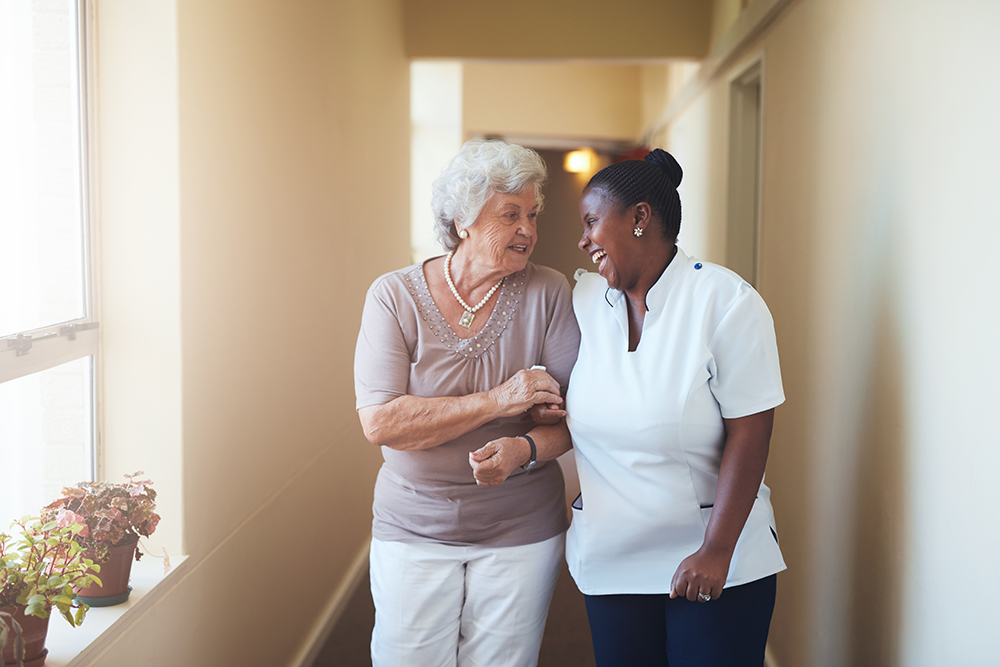Realizing that it is the time for your loved one to move to a memory care facility or assisted living is indeed not an easy process. Your loved one might appear perfect to you one day and the next day he/she might need extra care and assistance. They might not need regular medical assistance but may require more support than what is available at home. As parents as grow older, they should not feel neglected and may require monitoring throughout the day. Here are some signs which indicate that assisted senior living facilities are imperative for the loved ones of your family.
1. Daily Support Is Highly Required
Assisted living is particularly designed for senior citizens who are in need of help in one or more daily activities such as bathing, grooming, dressing, eating, walking, taking medication, etc.
Failing to take personal care of oneself will be evident when something like proper bathing is not happening regularly. If you notice a smell as you come close to your loved one or find that he or she is wearing the same clothes on a daily basis that is a clear sign that they need assistance.
2. Change In Personality
Cognition changes and slows down with age, but a drastic change in personality is indeed a major warning. Avoiding social gatherings, giving up hobbies and staying home all the time is a clear indication that your loved one is facing some issues and in need of assisted living facilities.
Assisted living such as this senior living Oceanside CA property provides a wide array of activities like card games, live performances, communal dining, and devotional services to keep them engaged. It indeed helps an aging individual to enjoy life to the fullest, as well as enjoy the company of their peers.
3. Noticeable Weight Loss
When your loved one lacks the ability to cook, they resort to eating meals that are easily available. With age, the most common problem that is noticed among older adults is a memory problem and eventually, they start forgetting to eat food. Subsequently, within a short period of time they might experience significant weight loss. Lack of proper nutrition is indeed a severe issue which needs assistance.
4. Memory Issues:
Other signs of memory problems to watch for are electrical devices left turned on, food not eaten, and doors kept open. As you start noticing such problems, it means your loved one needs additional medical assistance for memory issues along with assisted living.
When you find your loved one having mental disabilities, the issue needs to be addressed sooner rather than later. It means that your loved one needs care 24 hours per day, and they will be in safe hands when you hire a caregiver. Enrolling them in an assisted living facility will provide peace of mind.
5. Costs Of In-Home Care Cannot Be Sustained
For some seniors, in-home care often makes sense as long-term care insurance and health insurance becomes a financial challenge. Financial concerns are indeed a convincing reason for making a change from home care to assisted living. But if in-home care becomes more expensive than the cost of assisted living, considering assisted living is a great option.
Caring for a loved one for extended periods of time can cause exhaustion and fatigue to the caregiver. You will certainly want them to get the best possible care. If it is becoming difficult for you to take care of them, enlisting the help of professionals might help you to cope with the issue.
6. Frequent Accidents
Falls, slips, and trips are common among elderly people but such mishaps might indicate a little more than worsening of their mental condition and physical health. Complexity in getting up or recognizing their daily medicines are signs that assisted care is essential.
Senior Housing Options
The list of senior housing options is extensive. Let’s have a look at some options:
- In-home Care: Private caregiving or in-home care is used extensively for keeping elderly people at home with their family and provides required care.
- Home health care: It refers to the home service care given by skilled medical professionals such as physiotherapists, nutritionists, speech-language therapists and injection by a pharmacist, as prescribed by a doctor at home.
- Assisted living: This option provides a structured setting for people who are in need of care in an apartment setting.
- Retirement living: Retirement Living Communities are appropriate for those who are able to take care of themselves or with assistance from a private caregiver or family members in an apartment type setting. Independent living offers a monthly meal plan, social activities, housekeeping, and transportation. No medical assistance or health care services are provided.
- Adult day care centers: This can be a welcome respite for the families caring for their loved ones. These facilities offer daily activities, meals, transportation, and hands-on care.
Wrapping Up
There is nothing wrong if a loved one requires extra help but it is imperative to look out for the above-mentioned signs. Research has shown that approximately 70% of Americans who are 65 or older need long-term care. Be vigilant and look for signs mentioned in your older loved ones.
Most families take a lot of time to make the decision of moving to assisted living, as there may be some guilt involved in that final decision. If you wait for a severe crisis such as a stroke or a fall, options that were available earlier might not be appropriate. It has been found that when families make the move to put their loved ones under the care of a private caregiver, many will admit that this should have been done at least 2 years earlier.

